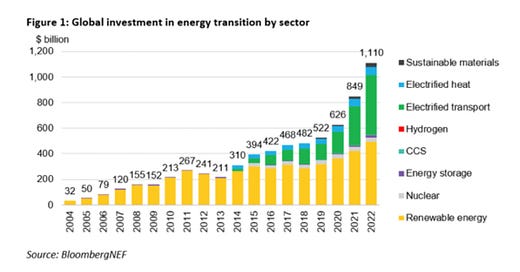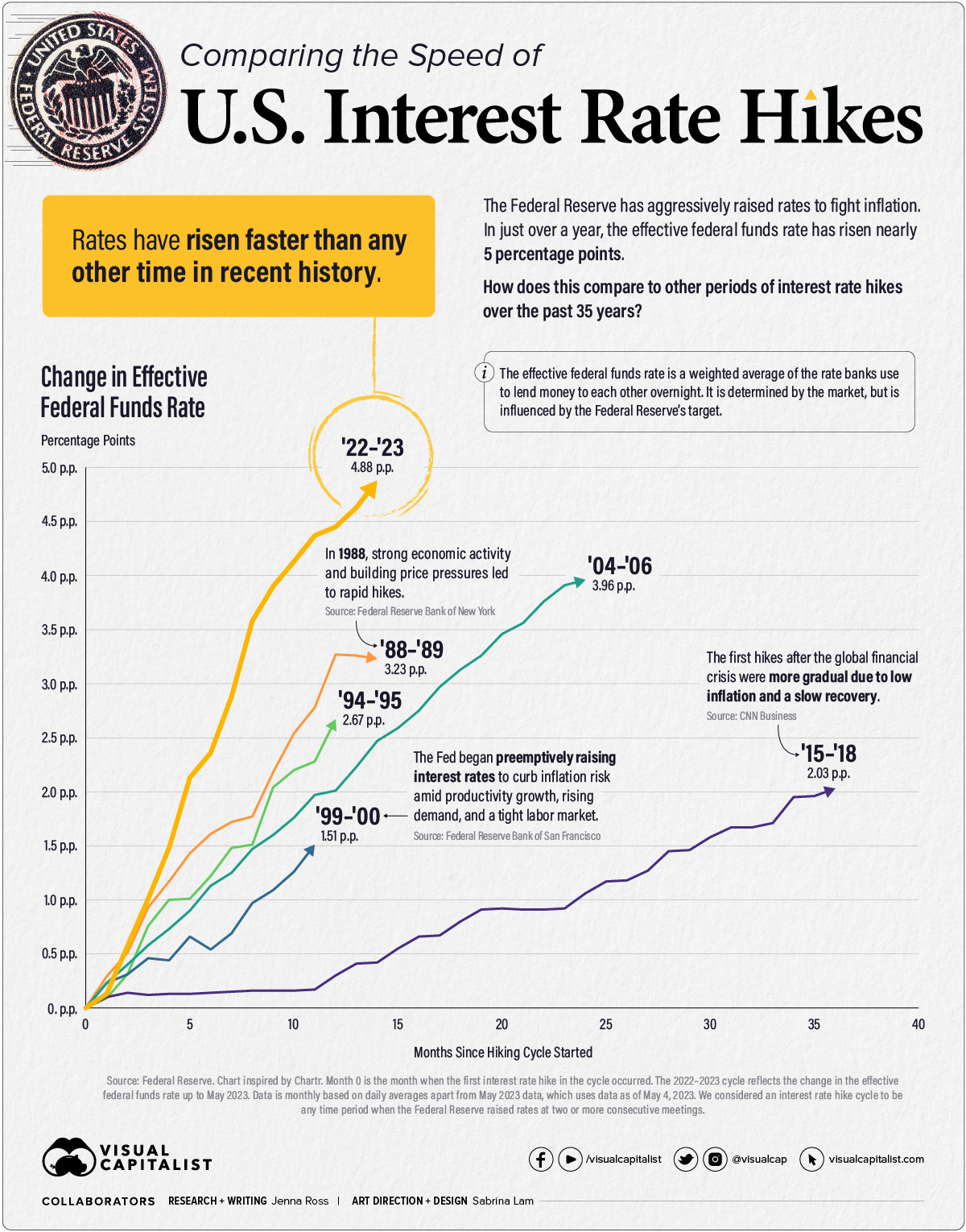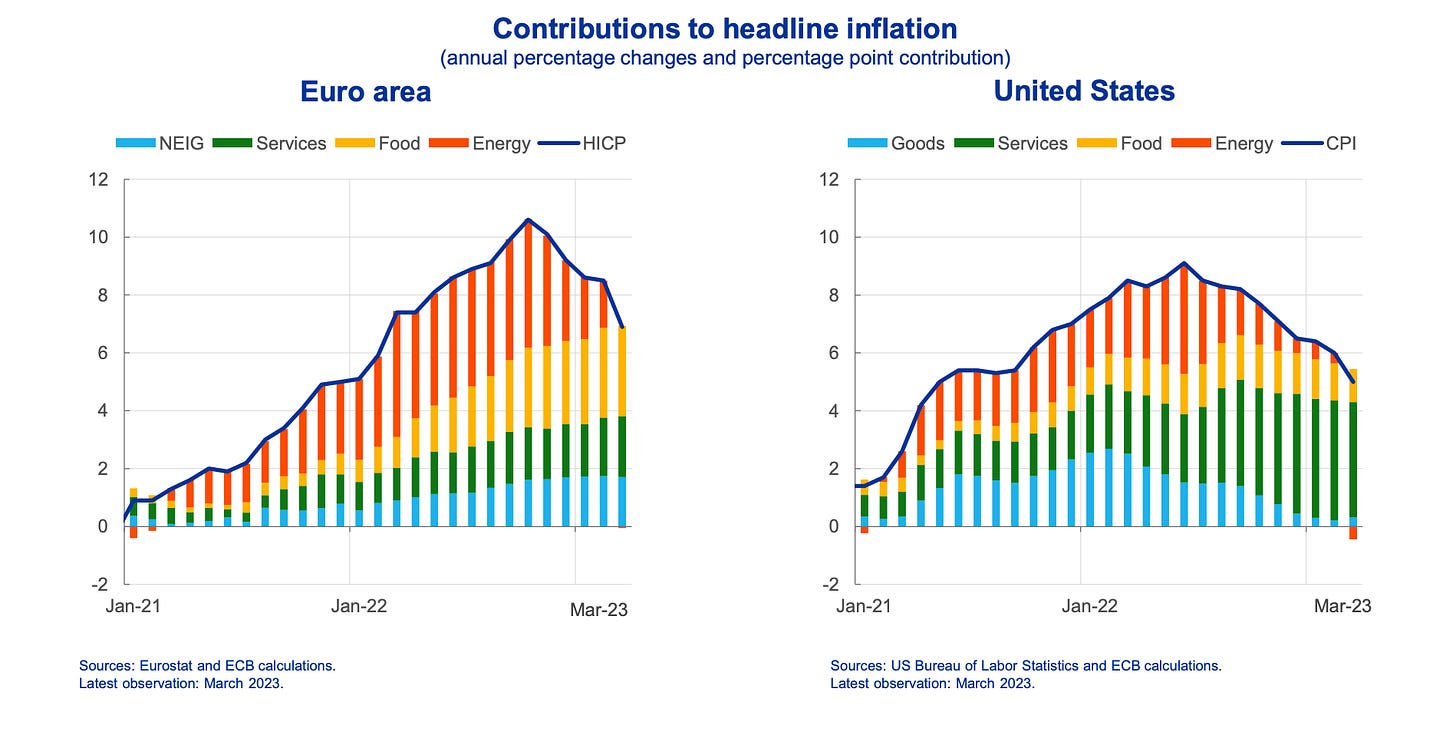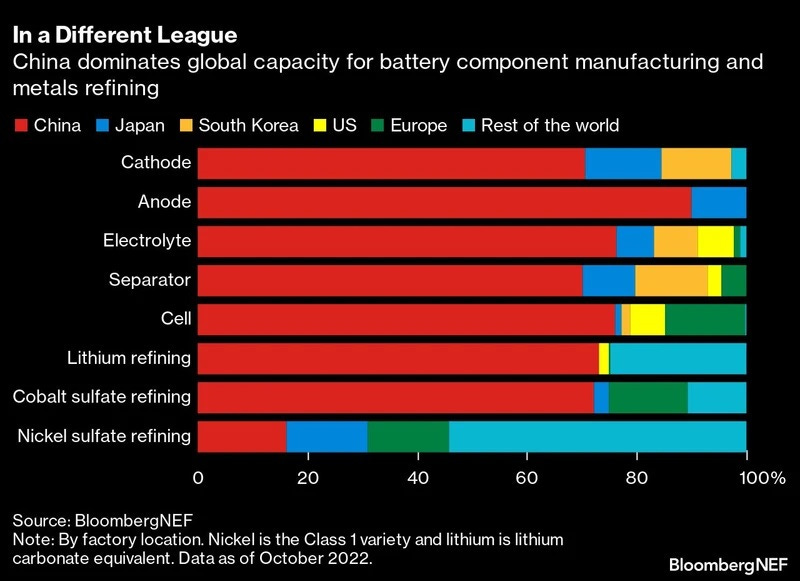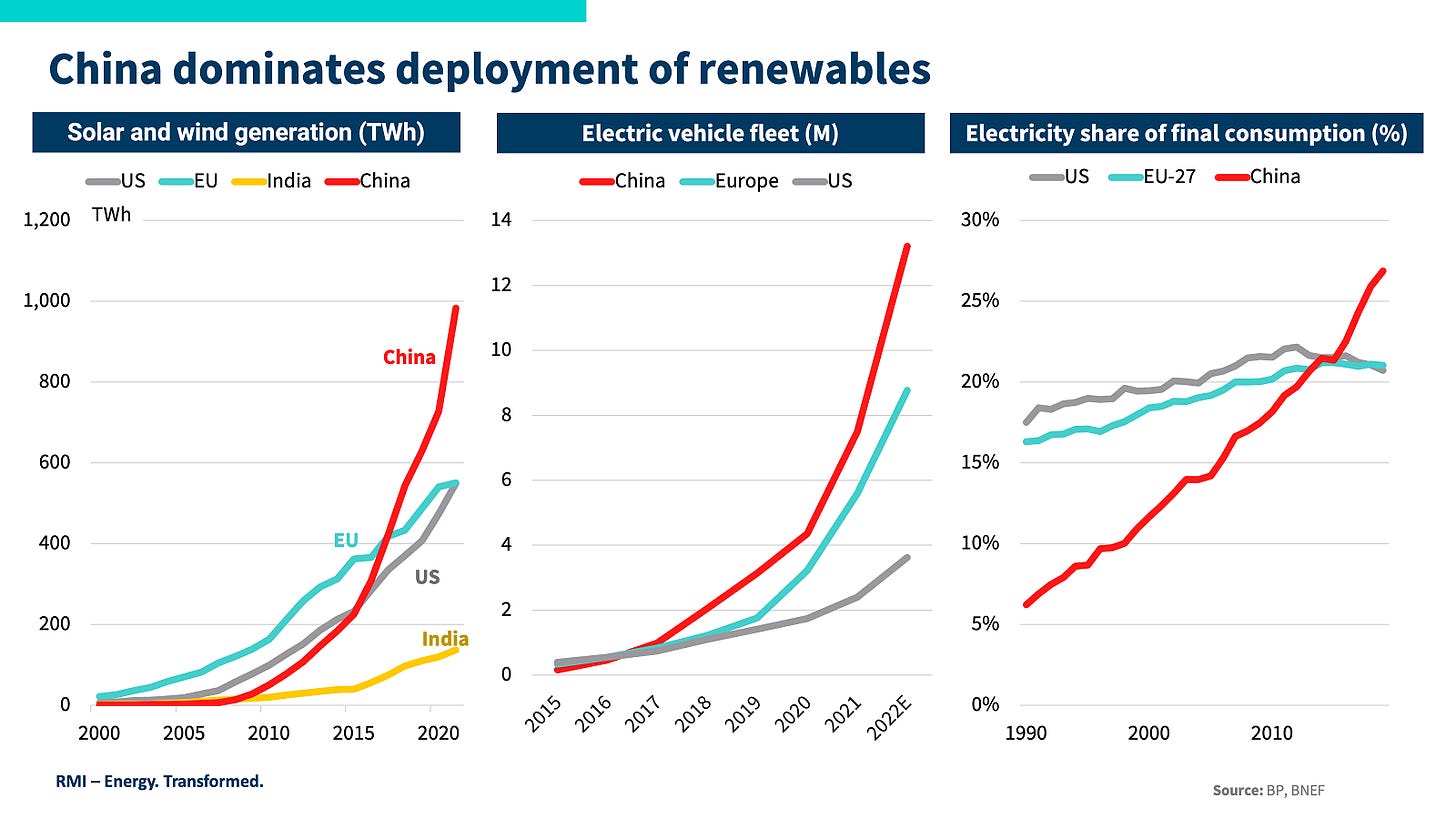LT #13 - Top Links - May 2023
American political realignment?, debt default averted, platform wars, gatekeepers of industry, the energy transition, China and its dominance of both coal and renewables, and financial/economic news
This is the monthly newsletter of LeftTimes - an aggregator of thoughtful articles, videos, and podcasts sourced from 200+ progressive publications covering, news, politics, and culture. For the full experience, download the free mobile app or bookmark the website.
Assorted Links
Uncharted Territories - Quarterly Update Q2 2023 - an excellent assortment of links spanning remote work, the loneliness epidemic, the decline of the Amazon, AI killing jobs, how maps are the territory, and differences of political opinions on masks.
The New Gatekeepers - Benedict Evans has shared his latest annual 100+ slide summary of the macro and strategic trends in the tech industry. Touching on how the the end of free money particularly hit Silicon Valley and how tech giants are the new gatekeepers of advertising, e-commerce, payments, fashion, television, search, and more - and how they will be the next thing to be unbundled.
Platform Wars - Joshua Citarella, as usual, beautifully articulates his pulse on the cutting edge of culture
In the short term, platforms will compete on the level of culture (ie which sites have the best offerings for content). In the long term, they will compete on the level of network effects, towards the end goal of establishing an everything-app monopoly…
There are already sharp taste distinctions between people who get their news and culture from mainstream platforms (the mall) vs. that new cool site with weird stuff (the niche record store a few blocks down).
Green Hydrogen - Adam Tooze asks whether this is a viable and necessary technology for climate transition or political fantasy of the fossil fuel industry
American Political Realignment in the Air?
The Biden Administration just declared the death of Neoliberalism - how the critiques of the past 4 decades of economic policy have become entrenched and bipartisan - a new Washington consensus is emerging.
Ukraine and the Republican Party’s Drift from the ‘Honor Code’ of Jacksonian Diplomacy
If a Biden platform based on continued support for NATO and a free Ukraine proves victorious, however, the president could claim to have harnessed the honor code integral to the Jacksonian and pre-Trump Republican presidents. Such a realignment would further challenge those who ascribe the Jacksonian paradigm to the post-Trump GOP and who contradict the reality that the hard right’s reaction to Ukraine’s invasion precludes a natural relationship between the military solidarity of Mead’s idea and contemporary Republicanism.
Banking is Back - Time to Learn to Love Financial Policy
The debt ceiling deal - what was the whole point? - Republicans could’ve achieved the same thing through the standard budgeting process. There was no reason to risk a global financial meltdown and American creditworthiness and global image.
A Softer Landing on a Longer Runway? - Is the US economy shrinking? Are we set for a prolonged period of stagnation - a balancing act between inflation, interest rates, employment, investment etc.? Can we get lucky and blunder our way out of this?
The Risks Still Lurking in the Banking System
Plainly, it’s clear that government efforts haven’t yet been enough to convince depositors their money is safe. The government backing of uninsured deposits at Silicon Valley Bank and Signature Bank did not convince First Republic’s depositors their bank was safe, and in related crises abroad even GSIB status did not stop Credit Suisse’s depositors from fleeing. To the extent depositors remain unconvinced of the financial system’s safety and security, banks with shaky balance sheets reliant on uninsured deposits will continue to be punished.
Chartbook #217 - The Inflationary surge of 2022: trans-Atlantic comparisons and European hotspots - America and Europe have increasingly divergent economies.
Chartbook #213 - Expanding the Fortress: Why JP Morgan is even more important than you think! - With Jamie Dimon considering an entrance into politics, it’s worth asking the question: is he already the most powerful businessman in the world?
Rethinking Economics and Economic History
Progress and Poverty: Socialism vs The Single Tax, Pt 1 and Socialism vs The Single Tax, Pt 2 - An excellent two-part from piece on the break between Socialists and Georgists in the early 20th century:
It is now clear that on multiple axes – capital versus land, monopoly versus free markets, statism versus individualism, capitalism versus landlordism, wages versus rent, old Europe versus new America – Socialism and the Single Tax are radically different paradigms. The split of 1887 was inevitable, Henry George was simply the first to declare it.
Book Review: Lying For Money - The annual ACX book review context is back, and this one is epic - discussing the various forms of fraud and how the natural equilibrium of fraud in society must be non-zero.
Are Cities the economic units that really matter? Jane Jacobs thinks so. In this excellent ACX book review, a pair of her lesser-known texts get some airtime: discussing political separation and economic urbanism/localism.
China - the economics of the emerging world power
Where China is beating the world - high-speed rails, EVs, batteries, manufacturing, and renewables.
Coking Coal - Paradoxically, China not only dominates renewable energy, but also coal. Alex Turnbull at Syncretica does a small victory lap and discusses the explosion in Chinese coal imports from Mongolia to fuel its vast increase in coal power plants.
Noah Smith Interviews Dan Wang, China Specialist
Any technology that demands the complex integration of different scientific areas is challenging for Chinese firms. Semiconductors bring together electrical engineering, chemistry, computer science, and more; aviation is the integration of aerodynamics, materials science, mechanical engineering, etc. China's scientific capabilities have steadily risen, but I would say it's still fairly weak. No surprise, perhaps, that Chinese firms weren't able to produce mRNA vaccines, since its scientific establishment is unused to puttering around the fringes of new fields.
On the other hand, for any technology where the science is mature, and the complexity lies more with the manufacturing process, China tends to be strong. Take renewable technologies like solar photovoltaics or EV batteries. The science of turning light into electricity and power storage are pretty well understood. But Chinese firms have been able to outbuild their foreign competition (with plenty help from government support) in creating high-performing products. Putting together a battery, for example, involves around ten steps—from cell filling to final sealing—that demand perfect handoff at each stage. Chinese firms are really good at this, which they learned from the highly-demanding electronics supply chain.
And finally AI…
Why is sentiment towards AI so much more positive in the developing world than the west? What does this mean for the 21st century?

